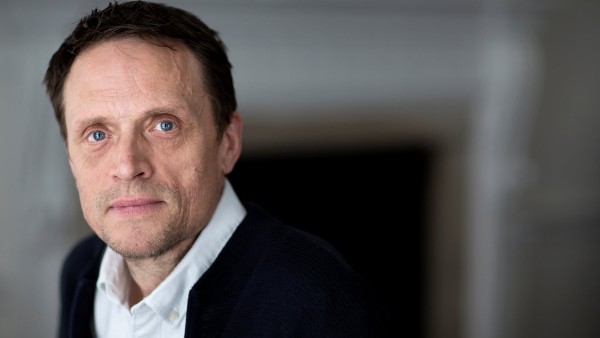In the 1970s, so the story goes, when for the first time in its history the Association of University Teachers (now part of the University and College Union) took strike action, a committee of dons was established to agree a protest slogan.
After several long and intense meetings a consensus was reached. On the appointed day taxi drivers, office workers and tourists thronging central London were called on to express their solidarity with the AUT’s stirring demand, printed on hundreds of placards and chanted as protestors in their gowns and mortar boards marched down Whitehall: ‘Rectify the Anomaly’.
I was reminded of this communication failure at a seminar yesterday on progressive responses to the rise of political populism in Europe. Among the various contradictory suggestions were that mainstream parties should get better at addressing the bread and butter issues that often most concern, and annoy, people and, conversely, that progressives should counter the nostalgic idealism of populism with their own mobilising visions, not of a lost past, but a better future.
Perhaps these ideas fit better together than first seems.
Currently political debate is dominated by a short list of almost entirely negative stories; on public service cuts, falling living standards, immigration and welfare. A few posts ago I asked whether the focus could have shifted by next May:
‘The odds are that the next election will be about blame and credit for the past and an unedifying retail sale of pledges for the future. Yet my sense of what the country needs and what voters may be ready to hear, is a message broader, braver, more engaging and uplifting. Something about the kind of country we want to be and the kind of choices our collective aspirations involve not just for Government but for us at citizens’.
As we emerge from long recession with an unbalanced and a patchy recovery and continue with public service austerity, political idealism may seem wholly misplaced. Certainly, what we don’t need is mere gassy rhetoric about the ‘great future of our great country and its great people’. Indeed polarising negativity and unrealistic promises are the twin banes of political debate. While rhetorically the latter may be the antidote to the former, together they are bound to obscure real political choices.
Which is why I was struck by a point made at the seminar by the writer on philosopher, Julian Baggini. Might it be that recession and austerity have instilled a greater realism among the public, a realism that would enable politicians to combine an optimistic story with candid acceptance that a better future can only come about through the combined efforts of Government and civic society?
Such a story interweaving realistic ambition and concrete challenge is surely what we want and need to hear not just as a piece of rhetoric (as it largely was with David Cameron’s Big Society) but as a political organising principle, a component of every major policy, indeed central to a different way of thinking about policy and political power?
If for example, any Party, was to feel inclined to reassert the now effectively abandoned pledge to abolish child poverty, it would surely have to rely not only, or even mainly, on new Government spending but instead on a society-wide mobilisation, by councils, public services as a whole, businesses, churches, charities, community groups and poor families themselves .
When things are going well politicians are tempted to offer to solve every problem themselves: whatever Tony Blair actually said, this is what New Labour was heard to be offering in 1997 and 2001. When things are going badly people may be too angry and hurt to accept a message which makes demands on them, which may be why, as the IFS’s Paul Johnson argues in this morning’s Times, there is a tacit agreement among the main parties to avoid admitting the scale of the fiscal choices ahead.
Perhaps the background of 2015 - a country that has survived the crisis but knows it faces many more challenges and is a long way from thriving - is propitious for a new type of message and a new model of change?
Back at the seminar, someone suggested a new take on the classic call and response chant:
‘What do we want?’
‘Pragmatic, progressive idealism!’
‘Ah yes’, said another contributor, ‘but don’t forget the second half’;
‘When do we want it?’
‘As soon as we agree that it’s practically feasible’.
Related articles
-
Hierarchy: can’t live without it, can we live with it?
Matthew Taylor
In the ninth of a series of posts about ‘coordination theory’ - a set of ideas about human motivation, organisational and social change - the form of 'hierarchy' is analysed. Hierarchy is a form which we seem in equal parts to resent and to need.
-
Why a long-term view should be at the heart of public services
Ian Burbidge
Decisions made today shape the lives of future generations. It is vital we take a long-term perspective when it comes to planning public services.
-
Whose future is it? Why every voice matters
Adanna Shallowe
Any process that seeks to re-imagine the future must be co-designed to be inclusive.




Be the first to write a comment
Comments
Please login to post a comment or reply
Don't have an account? Click here to register.